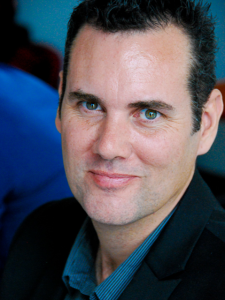After receiving his B.A. in International Development from UMass Amherst, Jonathan Estes has worked over thirty years as an experiential educator, business leader, analyst, and sustainability expert. In all the settings he has worked, clients are excited about discovering new ways to demonstrate their value to stakeholders to achieve positive outcomes for health, the environment, social equity, and profits.
As an adult educator, Jonathan has always pushed the limits of technology to improve innovation, behavior change, and strategic planning, most recently for many projects requiring models, simulations, and games. For example, in sub-Saharan Africa, he managed the deployment of a computer-based simulation for training clinicians how to treat HiV/AIDS more effectively; and he has designed two cooperative board games on climate change and green supply chains.
A compelling and insightful writer and a popular keynote speaker, he has presented the concepts and trends of measuring and communicating business values in a variety of conferences and publications. In his book, Smart Green: How to Implement Sustainable Business Practices in Any Industry and Make Money (Wiley & Sons, March 2019), Jonathan outlines the key sustainability issues and processes leaders in all sectors need to be aware of to be both sustainable and successful.
Jonathan’s current work focuses on applying his life-long passion for game theory and dynamics to strategic decision-making and behavior change for a better world as founder and CEO of GamaVida, Inc.
Sample Topics
The Game of Life: Applying Game Theory for a Next Generation Tool for Personal Transformation
How can building a game help you overcome a current challenge or achieve a goal in your life? In this presentation, participants will apply game theory principles and game dynamics to create a microgame based around the circumstances and systems of an immediate challenge or goal. Once completed, participants will play their game for personal insights and potential breakthrough decisions not usually seen in real life. This realization comes from being able to try out different strategies and decisions without real-world consequences. Applications for this methodology are unlimited for personal, team, and organizational transformation.
Advancing Experiential Learning Across the Enterprise
Improving employee morale and productivity is currently challenging, especially with the limited tools available for remote management and training. Traditional methods of learning with talking heads, slide decks, pdf documents, and skill tests are inadequate to impact behavior change where experiential learning methodologies such as serious games, microlearning, scenarios, and stories can have a better effect. In this presentation, current practices and examples of experiential learning activities will demonstrate the value such as greater participant agency, fail fast in safe environments, see the whole system, overcome myopic thinking, and reaching new generations that expect more interaction and experience, mentorship, and practical learning outcomes.
Building Game Culture: Transforming Behavior Change with Serious Games
Serious games provide an opportunity to positively affect culture change in organizations. They offer a safe environment for experimentation, accelerating innovation and adaptation in volatile environments. When networked across the organization, games enable people to pool their collective skills, intelligence and insights to solve problems more quickly and creatively. For customers and stakeholders, games also provide multi-directional feedback loops for both collecting and disseminating information to the appropriate decision-makers. Takeaways from the case study will include how serious games are particularly effective tools for improving decision making, including eliminating blind spots, connecting the dots in a complex system, and using scenarios to move beyond dashboards.
Case Study of Serious Games for Overcoming Silo Mentality
Serious Games refers to activating game theory, game dynamics and virtual worlds to address real world issues. Where traditional strategic planning approaches to problem-solving break the process into distinct sequential steps, the result often reinforces the problem of silo mentality. Through a case study of a digital serious game pilot focusing on reducing the impact of malaria in countries affected by rising climate change, mismanagement of resources, and increasing resistance to pesticides, this presentation will describe how serious games can make a difference.












